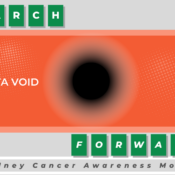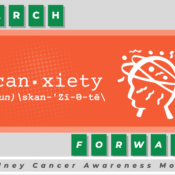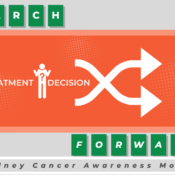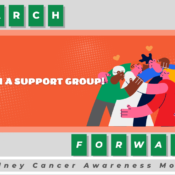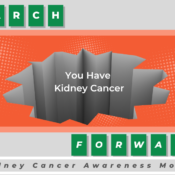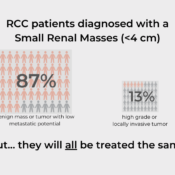Author: KCCure
KCCure Chromophobe RCC Research Grant awarded to Dr. Lisa Henske
The Kidney Cancer Research Alliance (KCCure) announced today that Brigham and Women’s researcher, Dr. Lisa Henske has been selected to receive the KCCure Chromophobe Research Grant Award of $50,000 for her proposal: Targeting KIT in Chromophobe Kidney Cancer. This is the third annual KCCure research grant awarded for Chromophobe Renal Cell Carcinoma (ChRCC), and the second grant to be a...
Chromophobe Research Grant Awarded to Researchers at Brigham and Women’s Hospital
The Kidney Cancer Research Alliance (KCCure) announced today that Dr. Elizabeth Henske and Dr. Carmen Priolo have been selected to receive the FY2022 KCCure Chromophobe Research Grant Award of $50,000 for their proposal: Role of Cysteine Homeostasis and Ferroptosis in the Therapy of Chromophobe RCC. “We are absolutely thrilled to receive this wonderful support from KCCure,” said Drs. Hen...
Conquering the Data Void
A data void exists when there is a high level of demand for information but little information exists. If you or a loved one has been diagnosed with a rare form of kidney cancer – you have entered a “data void.” Two years ago, you had surgery for a large renal mass. When the pathology came back, “chromophobe renal cell carcinoma,” your doctor told you that you were lu...
Scanxiety!
When you wake up this morning, a calendar reminder pops up on your phone. You have an immediate sinking feeling. It’s two weeks until your scan. This is the first scan since you started adjuvant treatment. You feel good and haven’t had too many side effects. But in a weird way, that makes you wonder if the drug is even working. Some moments you feel confident and convinced that this scan will be c...
Adjuvant Treatment – No Clear Choice
Stage 1 turns out to be Stage 3 You are home recovering from surgery when your pathology report arrives in your medical portal. What your doctor thought was a small, stage 1 renal cell carcinoma was actually a stage 3, grade 2, renal cell carcinoma. Even though the mass was small – less than 5 cm – it invaded the segmented veins – which means it is now stage 3. You don’t fully understa...
You Are Not Alone
Since your kidney cancer diagnosis, you have been struggling emotionally. Your friends and family – the people you rely on the most – have responded in ways that you didn’t expect. Their comments are well intended – but they often come across as hollow and toxically positive. When someone says, “be strong!” – it makes you wonder if they think you aren’t being strong. The words “be posit...
KCCure Awards $50,000 to Memorial Sloan Kettering Researchers for their work in Chromophobe Renal Cell Carcinoma
March 31, 2022 The Kidney Cancer Research Alliance (KCCure) announced today that Dr. Ming Li and Dr. Martin Voss with Memorial Sloan Kettering Cancer Center have been selected to receive the inaugural KCCure Chromophobe Research Grant Award of $50,000 for their proposal: Tumor-resident cytotoxic innate lymphocytes (ILC) as novel targets for immunotherapy in chromophobe renal cell carcinoma (c...
Addressing Diagnostic Uncertainty in Localized Kidney Cancer
Many patients will be told that they have localized kidney cancer based solely on imaging alone. This can give the impression that diagnostic accuracy of scans is higher than it actually is. While CT scans are predictive of renal cell carcinoma and are routinely used to recommend surgery – the only definitive way to know for sure whether a renal mass is cancer is surgical removal. As many as 20 pe...
Voice of Kidney Cancer – The Story of Benny
Sometimes Angels Don’t Have Wings – They Have Paws Eleven years ago I was diagnosed with renal cell carcinoma. If you or a loved one has been impacted by cancer, I don’t have to tell you what that day was like. Almost to the day, Benny came into my life. He was small and all he wanted to do was be with me all of the time. Since my initial diagnosis, I have endured five surgeries,...
Rare Disease Day 2022
In the United States, a rare disease is defined as a disease that impacts fewer than 200,000 people. In the European Union, it is defined as a disease that effects 1 in 2,000. Kidney cancer patients know they have a rare disease because they hear this: “We hardly ever see this subtype of kidney cancer…” “There are treatments we can try, but we don’t know if they will work for you.” Mos...

